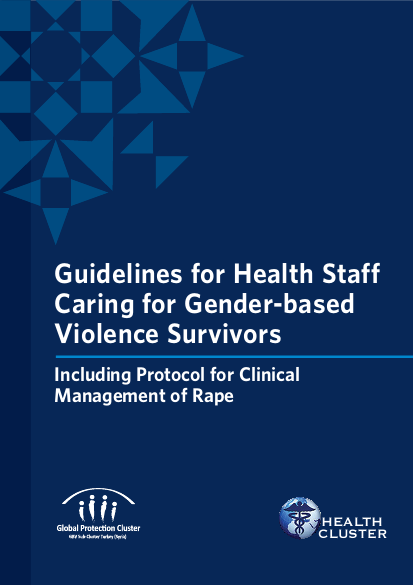
Gender-based violence, including rape is a problem throughout the world, occurring in every society, country and region. Refugees and internally displaced people are particularly at risk of this violation during every phase of an emergency situation. The systematic use of sexual violence as a method of warfare is well documented and constitutes a grave breach of international humanitarian law.
Rape, sexual assault and other forms of GBV are also prominent features of the Syrian conflict. Gender-based violence, including rape is a problem throughout the world, occurring in every society, country and region. Refugees and internally displaced people are particularly at risk of this violation during every phase of an emergency situation. The systematic use of sexual violence as a method of warfare is well documented and constitutes a grave breach of international humanitarian law.
Rape, sexual assault and other forms of GBV are also prominent features of the Syrian conflict. The main types of GBV reported in assessments were domestic violence, early marriages, harassment, sexual exploitation and the fear of sexual violence. Women and girls report fearing sexual violence and abuse in camp settings, at distribution and service points, when using WASH facilities, when crossing checkpoints or when walking around in their community without a male accompanying them. In areas controlled by Islamic extremist groups, women and girls fear arrest and physical punishment for not adhering to new rules imposed by these groups. The combination of new restrictive rules and fear of sexual violence results in a severe restriction of movement for women and girls.
Sexual violence has taken place in detention centers and by different armed groups. Syrian civil society, as well as the Special Representative of the Secretary General (SRSG) on sexual violence in conflict, confirms this through their reports. The SRSG noted “the rise of extremist groups using sexual violence as part of their key strategic objectives, and the increased targeting, by the same groups, of minorities based on their gender, ethnicity, religion or sexual orientation.” There is, however, no accurate estimate of the persons in need who would require GBV-related services. This is in a context where it is noted that cultural sensitivities, stigmatization and traditional norms prevent reporting of GBV. Additionally, new high levels of social tolerance and ‘acceptance’ toward GBV make reporting and accessing services more difficult.
This Clinical Management of Rape Survivors Protocol including Guidelines on Caring for Gender-based Violence Survivors reflects internationally recognized WHO guidance as it applies to current cross-border operations into northern Syria from Turkey, taking into account the protection systems and resources available, and the realities of what can be undertaken in areas which are undergoing continual change.
The protocol was adopted and endorsed by the GBV Sub Cluster (GBV SC) and the Health cluster with the generous support of UNFPA. To reach as many medical personnel as possible inside Syria, an Arabic version has also been made available. The protocol and guidelines are part of a larger strategy to respond to GBV.